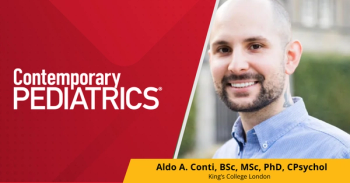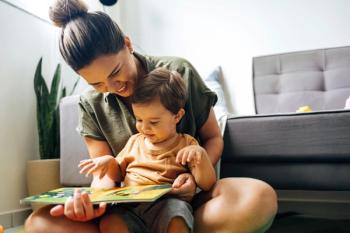
Nirsevimab demonstrates sustained efficacy in reducing RSV hospitalizations through 6 months
New phase 3b durability data revealed nirsevimab reduced RSV hospitalizations in infants by 82.7% through 180 days vs no intervention.
Since it was approved on July 17, 2023, nirsevimab (Beyfortus; Sanofi and AstraZeneca), has been a welcome tool for pediatric providers to fight against respiratory syncytial virus (RSV) disease in neonates and infants entering, or born during, their first RSV season. Backed by strong safety and efficacy data, the monoclonal antibody has been celebrated by providers and agencies alike, with over 6 million infants immunized.1
On May 29, 2025, real-world, sustained durability data and additional efficacy data were announced at the 43rd Annual Meeting of the European Society for Pediatric Infectious Diseases (ESPID) in Bucharest, Romania, according to a press release from Sanofi.2,3
Key data points included sustained efficacy and protection against hospitalizations due to RSV-associated lower respiratory tract infection (LRTI), as the antibody reduced hospitalizations by 82.7% through 6 months (180 days) compared to no intervention. Additionally, nirsevimab was associated with a 69% reduction in RSV hospitalizations in Spain following a nirsevimab-only immunization program.2
Sustained nirsevimab efficacy for 6 months
The 82.7% reduction sustained through 6 months was based on data from the ongoing phase 3b HARMONIE study, an open-label, parallel arm, randomized, controlled study conducted in France, Germany, and the United Kingdom. The study, published in The Lancet Child & Adolescent Health, included 8057 infants who were randomly assigned to the nirsevimab group (n = 4038) or the standard care group (n = 4019). Infants are aged 12 months or younger and born at a gestational age of at least 29 weeks. Participants are assigned to receive a single intramuscular dose of nirsevimab (50 mg for children <5 kg or 100 mg for children ≥5 kg) or standard of care (no RSV prophylaxis) before their first RSV season.3
According to the study investigators, the primary outcome was the incidence of hospitalizations because of RSV-associated LRTI up to 180 days after administration of the monoclonal antibody. The median age at randomization was 4 months (IQR 1.0 - 7.0; range 0.0 - 12.0), and 52.1% of participants were male. At up to 180 days, 12 of 4038 infants in the nirsevimab group and 68 of 4019 infants in the standard care group were hospitalized for RSV-associated LRTI. These data corresponded to a nirsevimab efficacy of 82.7% (95% CI, 67.8 - 91.5 [P < 0.0001]).
"The 6-month data from HARMONIE show [nirsevimab's] protection exceeded the typical 5-month RSV season," said Thomas Triomphe, executive vice president of Vaccines at Sanofi, in a statement. "This is important because half of infant RSV hospitalizations occur in older babies born before the RSV season begins. These data demonstrating high, sustained efficacy, combined with real-world public health impact data, underscore how BEYFORTUS provides proven protection against the number one cause of lower respiratory tract disease in all infants.”2
Data on nirsevimab-only immunizations
According to late-breaking data presented at ESPID, from the REACH observational study, RSV hospitalizations were reduced by 69% in Spain after a nirsevimab-only immunization program was targeted to all infants. The real-world analysis was performed on the LOGEX RTI Observatory, run by health care analytics company LOGEX, and used administrative and microbiology data from multiple hospital sites across Spain and the United Kingdom.
With data collection going through May 2025, current results were reflective of 3 consecutive RSV seasons from June 2022 through the end of March 2025. No RSV prevention program was in place for the 2022-2023 RSV season.
More on overall RSV hospitalization rates
In early May 2025, the Centers for Disease Control and Prevention's Morbidity and Mortality Weekly Report published RSV-associated hospitalization data from a pair of surveillance networks among infants aged 0 to 7 months, which revealed that hospitalizations were estimated to be 28% and 43% lower in the 2024-2025 RSV season compared to pre-COVID-19 RSV seasons.4
The reduced hospitalization rates align with a
References:
1. Fitch J. Nirsevimab-alip FDA approved to prevent RSV in neonates, infants. Contemporary Pediatrics. July 17, 2023. Accessed May 29, 2025. https://www.contemporarypediatrics.com/view/nirsevimab-alip-fda-approved-to-prevent-rsv-in-neonates-infants
2. Beyfortus public health advantage bolstered by first real-world comparison of infant vs maternal RSV immunization programs. May 29, 2025. Accessed May 29, 2025. https://www.news.sanofi.us/2025-05-29-BEYFORTUS-R-public-health-advantage-bolstered-by-first-real-world-comparison-of-infant-vs-maternal-RSV-immunization-programs
3. Munro APS, Drysdale SB, Cathie K, et al. 180-day efficacy of nirsevimab against hospitalisation for respiratory syncytial virus lower respiratory tract infections in infants (HARMONIE): a randomised, controlled, phase 3b trial. Lancet Child Adolesc Health. 2025. https://www.thelancet.com/journals/lanchi/article/PIIS2352-4642(25)00102-6/fulltext
4. Fitch, J. Infant RSV hospitalization rates 28%, 43% lower this season vs pre-COVID seasons. Contemporary Pediatrics. May 9, 2025. Accessed May 29, 2025. https://www.contemporarypediatrics.com/view/infant-rsv-hospitalization-rates-28-43-lower-this-season-vs-pre-covid-seasons
Newsletter
Access practical, evidence-based guidance to support better care for our youngest patients. Join our email list for the latest clinical updates.






